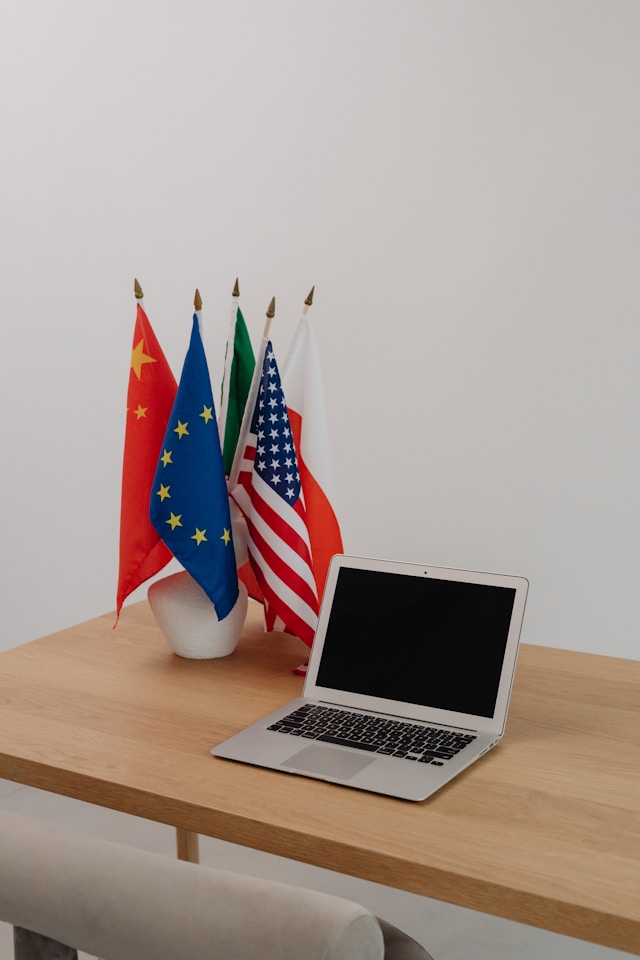Visa Stock Analysis: Is Visa a Strong Opportunity Ahead of Q4 Earnings?
$325.48
28 Jan 2026, 19:25

Unsplash.com

The newly confirmed U.S.-China trade agreement 2025 is being hailed as a constructive move towards reducing economic friction between the world's two largest economies. However, analysts caution that despite this progress, global trade tensions and deep-rooted geopolitical rivalries continue to pose serious risks.
Government officials from both the United States and China have formally signed off on the trade deal, which was initially brokered in London earlier this month. The agreement is based on a preliminary consensus reached in Geneva in May and aims to de-escalate recent trade disputes and uncertainty in global markets.
According to Capital Economics, while the deal is a "positive development," the foundations of this truce remain fragile. Ongoing political tensions and strategic competition between the two superpowers could still derail long-term cooperation.
China’s Ministry of Commerce announced that it will begin processing applications for goods subject to export control laws, opening the door for increased regulatory transparency. In response, the United States has agreed to remove several restrictive measures previously targeting Chinese exports.
One of the most significant components of the deal is China's commitment to continue exporting rare earth materials to the U.S.—a critical supply chain component for industries ranging from electronics to defence. In return, the U.S. will lift export restrictions on ethane shipments to China, supporting the growth of the energy sector in both nations.
U.S. President Donald Trump confirmed the trade agreement during a White House event on Thursday but offered no additional details. U.S. Commerce Secretary Howard Lutnick later told Bloomberg Television that the deal was "signed and sealed" two days earlier.
Despite the positive headlines, U.S.-China relations remain tense. Geopolitical divisions—especially those related to technology, defence, and foreign policy—continue to influence how both countries engage on the global stage. While earlier fears of an isolationist U.S. policy have not fully come to pass, concerns remain regarding long-term diplomatic stability.
The U.S.-China trade deal 2025 may ease short-term trade uncertainty, but its success depends on consistent policy enforcement and mutual cooperation. Market analysts suggest that while this is a step in the right direction, international trade relations will continue to face headwinds from economic nationalism, shifting alliances, and unresolved strategic disputes.
As the global economy adapts to new supply chain realities, businesses and investors alike will be watching closely to see if this trade agreement can pave the way for a more stable and open trade environment between the U.S. and China.
(Sources: investing.com, reuters.com, ChatGPT)